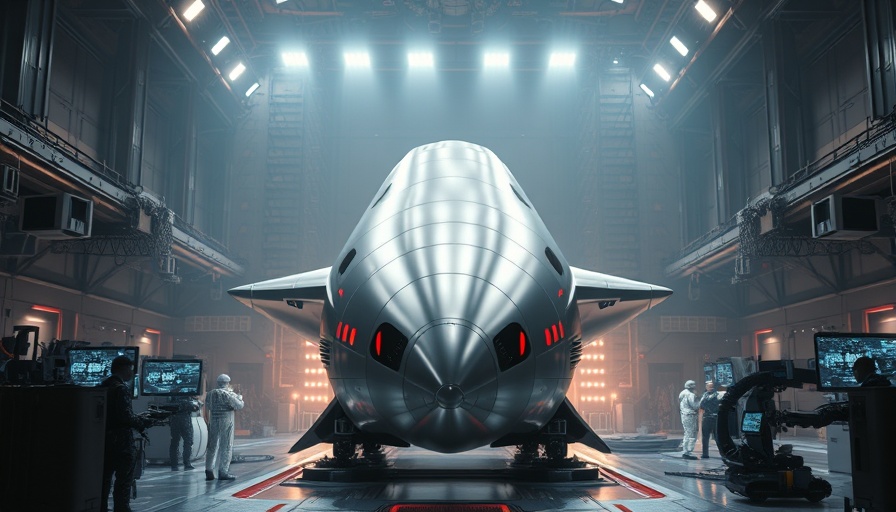
Elon Musk’s SpaceX Faces Uncertainty Amid Political Fallout
In a surprising twist in the realm of space exploration, Elon Musk, the visionary CEO of SpaceX, has signaled a possible shift in operations. Following a public spat with former President Donald Trump, Musk announced that his company could start decommissioning the Dragon spacecraft—a move reflecting the tension between business leaders and political figures. This development doesn't just affect SpaceX, it could potentially reshape the landscape of American spaceflight.
Historical Context: The Rise of SpaceX
Over the past decade, SpaceX has revolutionized space travel with its innovative approach and ambitious goals. The Dragon spacecraft has been instrumental in transporting astronauts and cargo to the International Space Station (ISS). Historically, this has enabled a new era of U.S. space endeavors and reduced reliance on foreign launches. SpaceX’s ability to conduct missions from American soil has been a point of national pride and technological achievement.
The Political Backdrop of Space Exploration
More than just a corporate leader, Musk has worn several hats, including that of a political influencer. His recent appointment as a “special government employee” underlined his deep ties within governmental frameworks, especially in relation to technological innovation. However, criticisms of Trump's economic policies have strained their relationship, demonstrating how intertwined politics and technology have become. Musk’s harsh critique of Trump’s financial initiatives has drastically shifted public perception, leading to potential ramifications for SpaceX's contracts and future endeavors.
Implications of Decommissioning the Dragon Spacecraft
The threat to decommission the Dragon spacecraft raises alarms within the aerospace community. If SpaceX halts operations on this essential vehicle, it would eliminate the U.S.'s capability to launch astronauts domestically, creating a significant gap until alternatives, like Boeing's Starliner, can be reliably thrust into action. The Starliner project has faced ongoing challenges, and it is far from operational without the impending certification which remains months away.
Future Predictions: The State of American Spaceflight
As tensions persist, the broader implications for American space exploration become clearer. The decommissioning of the Dragon spacecraft—if realized—could have catastrophic effects on NASA's future missions, especially with the ISS expected to be operational until 2030. This could usher in a period of uncertainty, potentially costing the U.S. its paramount leadership role in space exploration. With SpaceX also slated to oversee the ISS's decommissioning, the stakes in this political game are remarkably high.
Broader Trends in Space Innovation
While the current drama centers on SpaceX and Dragon, it opens up broader discussions on innovation in space travel. As governmental support in the tech sector fluctuates, other companies might rise to fill the void left by Musk's SpaceX. International space agencies and private startups will likely strategize to fill any gaps created by potential shifts in U.S. policy. The future could see a diverse array of international partnerships and competitive landscapes.
Concluding Thoughts: The Importance of Support in Innovation
The ongoing disputes between Musk and Trump serve to highlight the delicate interplay between politics and technology. With American spaceflight possibly facing an uncertain future, it underscores the vital importance of supportive frameworks for innovation. Companies like SpaceX are at the forefront of transforming our approach to space; therefore, how these tensions resolve will be pivotal not just for Musk, but for the entirety of space exploration.
 Add Row
Add Row  Add
Add 




Write A Comment